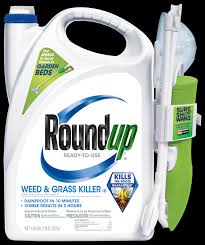It has been astonishing to watch the slow (and not so slow) downfall of some of Germany's iconic enterprises. Deutsche Bank, Bayer and Volkswagen come to mind.
"The simultaneous decline of Volkswagen, Deutsche Bank (DB), and Bayer has been nothing short of stunning. It raises the question as to whether it is merely coincidence, or if there is a larger systemic issue in play. Either way, something is rotten in the state of Germany."
Certainly, with respect to the emissions scandal, which damaged the Volkswagen brand but also ensnared the other German automakers as well as suppliers such as Bosch, there is indeed "something rotten in the state of Germany."
But in the case of both Deutsche Bank and Bayer, the problems are the result of disastrous M&A (mergers & acquisition) strategies. Deutsche Bank's 1999 acquisition of Bankers Trust put DB deep into business of risky derivatives which then put the bank at the center of the 2007 global financial meltdown – from which it still today has not yet recovered. Bayer's amazing decline is wholly attributed to its mega-acquisition of Monsanto – one of the most hated corporation on the planet:
"Along with Monsanto’s assets came a raft of outstanding litigation concerning alleged carcinogenic effects of that company’s Roundup weedkiller. Since early last June when the deal was made, Bayer stock has declined a remarkable 50%, sweeping away some $55 billion in market value.What’s so astonishing is that Roundup’s problems were hardly a secret. Some 11,000 cases were pending against Monsanto when Bayer bought the company, which was called by some “the most hated company in the world.” (That might have been a tip-off.) Recently a Northern California jury ordered Bayer to pay $2 billion to a couple who say they were diagnosed with cancer after using Roundup."
The track record of German companies buying up US companies – especially large, publicly listed ones – has not been good. In Die Welt, Anya Ettel and Holger Zschäpitz write about "Stupid German Money" :
Bayer-Monsanto ist nur das jüngste Beispiel für etliche gescheiterte Übernahmen in den USA. Ausgerechnet bei den besonders spektakulären Transatlantik-Deals haben sich die Dax-Unternehmen in der Vergangenheit Fehlgriffe geleistet. Nähren die deutschen Vorstände also das Klischee vom „Stupid German Money“, viel Geld für wenig Ertrag? Oder ist die Bilanz vielleicht gar nicht so schlecht, allen Misserfolgen zum Trotz?
Before Bayer-Monsanto there was Daimler's unhappy takeover of Chrysler, and the acquisition of Reebok by adidas. Both deals destroyed $$billions in shareholder value. What's behind such mega-disasters?
Was viele Fehlschläge eint, ist eine falsche Vorstellung davon, was der vermeintlich lukrative Deal in Übersee wirklich bringt. Häufig stürzen sich die Unternehmen in ein Abenteuer, weil das Management in eine Idee verliebt ist, die Prestige, Marktmacht und höhere Gewinne verspricht.
Even when acquisitions don't implode spectacularly in the press there have been many questionable transactions. Take the German software giant SAP, for example. SAP – like its US rival Oracle – has struggled for years to migrate its core business to the cloud and has made number of costly acquisitions in this quest. In 2011 SAP acquired SuccessFactors – basically a glorified online employee performance appraisal application cleverly branded as "business execution software" for $3.2 billion, or 10X revenues. More recently SAP acquired Qualtrics – a money-losing employee satisfaction survey company cleverly branded as "experience management software" for $8 billion, or 20x revenues. One analyst commented: "This brings up questions about SAP's acquisition competence. […] How lipstick was put on the investment opportunity "pig" Qualtrics has to lead one to scratch their head."
Still, there have been many successful acquisitions by smaller, privately owned companies. And then there is the spectacular success of JAB Holdings, the privately owned company of the Reimann family. The company has spent $49 billion buying up American consumer brands such as Green Mountain Coffee, Peet's Coffee, Krispy Kreme, Panera Bread, and many more. For the most part, JAB's acquisition spree has been highly successful:
"Private companies that manage a successful acquisition-led growth on JAB’s scale are as rare as hen’s teeth because takeovers so often result in a destruction of shareholder value, while the debt that fuels a deal spree remains stubbornly high."



0 comment
thanks for your valuable information.
keyword:SAP course in bangalore
url:https://socialprachar.com/sap-training-in-bengaluru/
Meanwhile, Bayer is worth less than they paid for Monsanto. Do they think they are too big to fail, in German ‘systemrelevant’? Or is there a masterplan too clever and too obvious that we can see it? OR BOTH??? If this was a game of poker, I would assume Bayer must have a big hand, the nuts. The showdown will be very interesting.